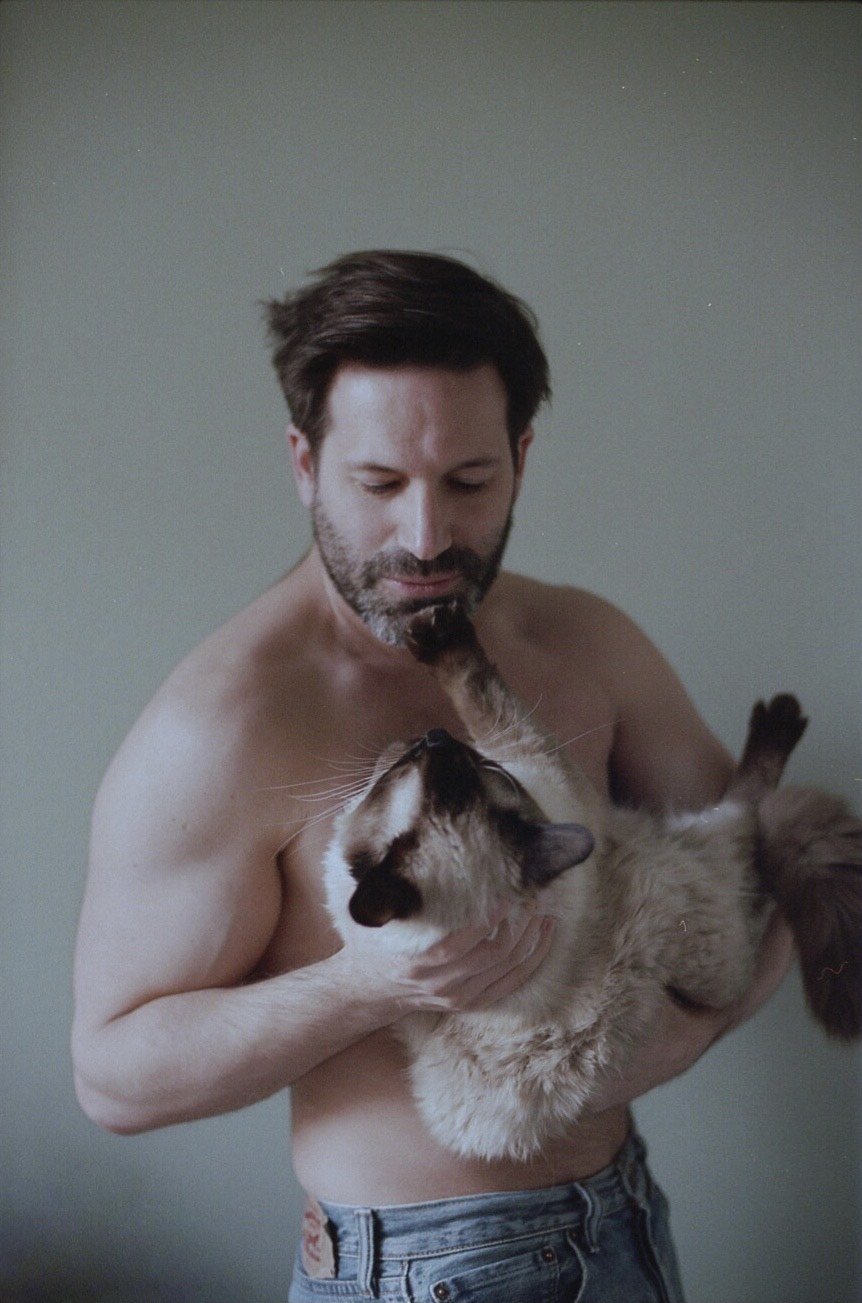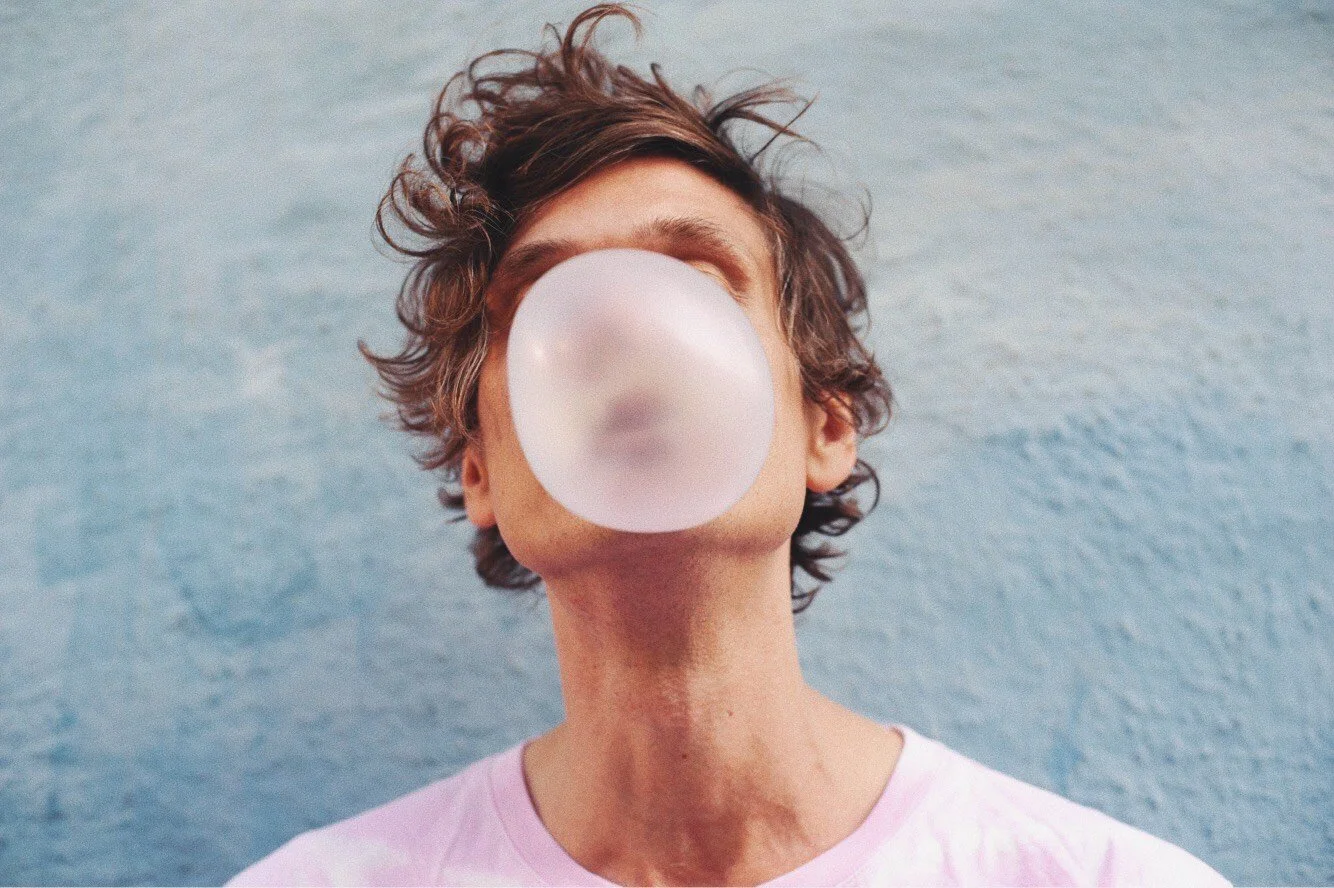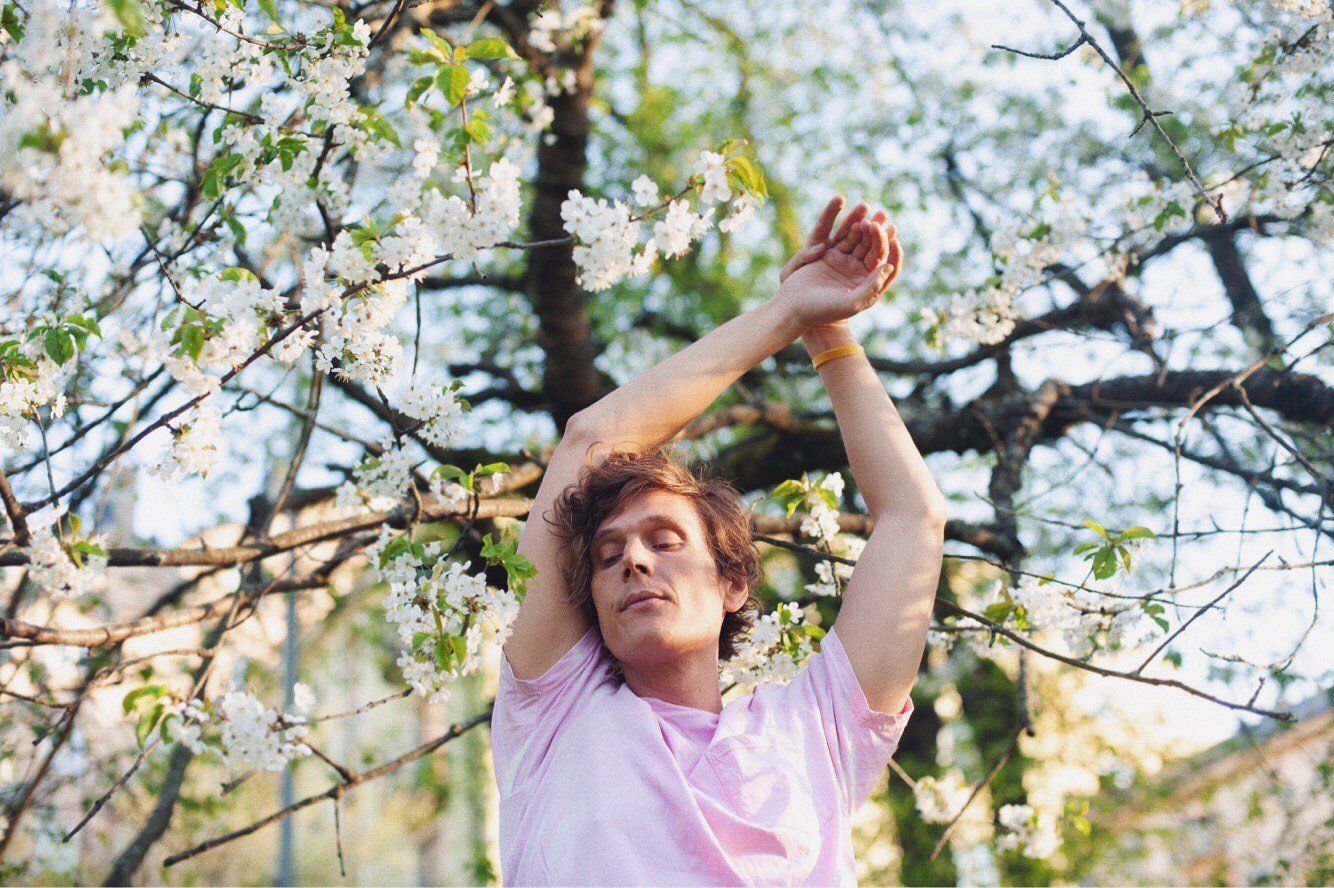Artist Feature: Hanna Gustafsson
Hanna Gustafsson (@hannachristiina) is a self-taught photographer from the woods of Sweden, currently based in Stockholm. She wrote her thesis about the girl gaze and how women portray other women in photography. For months she was digging up books about “the female nude”, the male gaze vs female gaze, representation through photography and feminist theory. She found that the debate was a lot about portraying women differently, in traditionally “manly” poses and so on - but there was very little being said about changing how we portray men. ‘Boys will be boys’, they say. In her work, Hanna explores how we portray masculinity: the very narrow image of men as strong, active, rational, dominant, and sexually confident. Hanna seeks to expand the binary to ultimately give space to a feminist perspective outside of the binary.
In her project ‘Masculinities’ she explores how ‘masculinity’ is portrayed in image making. She focusses on capturing cis men from her community through photography and talking to the subjects about their perspectives on masculinity. She thinks that the binary perspective of gender roles are harmful to society as a whole.
Erik: “Even though we see ourselves as modern people, I think that many men are afraid of crying among friends. The only time I’ve seen a friend cry was when I was 19 and we found our friend dead. He had committed suicide. The friend that found him cried - or it was not really crying, more like a moaning out of shock. Another friend started laughing really loud. It was his way of handling it. I didn’t even cry at the funeral. I think we men have to work on showing us vulnerable with each other.”
Photo by Hanna Gustafsson
Q: Can you share something you've learned from creating this body of work that would resonate with our community?
H: I learned a lot, both from the photo project and the thesis I was writing at the same time. Something that became clearer was that there are as many female perspectives as there are women, and as many male perspectives as there are men. And there are gazes that don’t fit into the binary divide of boy and girl, man and woman - and gazes that fit into both.
Q: Tell us about your work process! Do you plan your images ahead or are you more improvisational?
H: Most of the time I improvise, but when I shoot people I don’t know then I plan a little more. I usually do a mood board of general ideas, but I almost never have a clear vision in my head when I start to shoot. The result depends so much on the light, the mood and the connection with the person I’m creating with.
Jorge: “I might get some tears but I never fully cry like when I was a child. I don’t allow myself. For me it just feels like a waste of time.
.
When I was younger I always went out to the backyard where I hit a piece of wood when I was fighting with my girlfriend. My hands were completely destroyed. I was hitting with my right hand till I couldn’t do it anymore, and then I continued with the left hand. Teenagers you know…
.
I usually don’t get sad - I get angry. I get aggressive and shut down and create conflicts when I’m sad. I think it would have been healthier if I would have had someone to talk to when my mom died for example. I was mourning for 8 years. I lost my 20’s because I didn’t allow myself to be happy.”
Photo by Hanna Gustafsson
David: “If it had been more accepted, I probably would have worn makeup. More glitter and glamour! Now it feels like people are staring if you’re wearing something that is meant for a girl. Like a glittery shirt or something colorful.”
Photo by Hanna Gustafsson
Q: What types of expectations for artists are most challenging to you today?
H: That people expect you to work for free and don’t seem to understand the time and amount of work that is behind your photos. Not to mention how much it costs to shoot film.
Q: What does being a feminist mean to you?
H: There are so many reasons for being a feminist, but to just name a few. It means that I want to be able to walk home at night without constantly being afraid of getting raped - I don’t have one female friend that hasn’t been sexually harassed. It also means I don’t want to work harder than many of my manly colleagues, still earn less and being burned out at 26 years old. I don’t want women around me to be stuck with men that push them down, and aren’t able to divorce them because of their financial situation (or because they think they don’t deserve better). I could go on forever… patriarchy is toxic and destroys so much in this world.
Pelle: “Masculinity and femininity feels a little blurred in the world we live in today. I don’t think there are any clear differences anymore, except for the purely physical. I don’t feel that I experience any distinct gender roles.”
Photo by Hanna Gustafsson
Niclas: “One time I slept with a girl just because she got mad that I wanted to go home. She nagged and got aggressive I didn’t know how to get out of the situation - so finally I had sex with her even though I didn’t want to. I felt bad afterwards. But I guess that being metoo:ed as a guy is not generally as hard as it is for a woman. It says something about the discriminating culture around girls. That girls are expected to be sexually pure and because of that there is so much shame and stigma being assaulted. If you as a guy get your ass grabbed by a girl it’s rather seen as something positive. “She was so into me that she even started touching me.”
Photo by Hanna Gustafsson
Follow @hannachristiina









